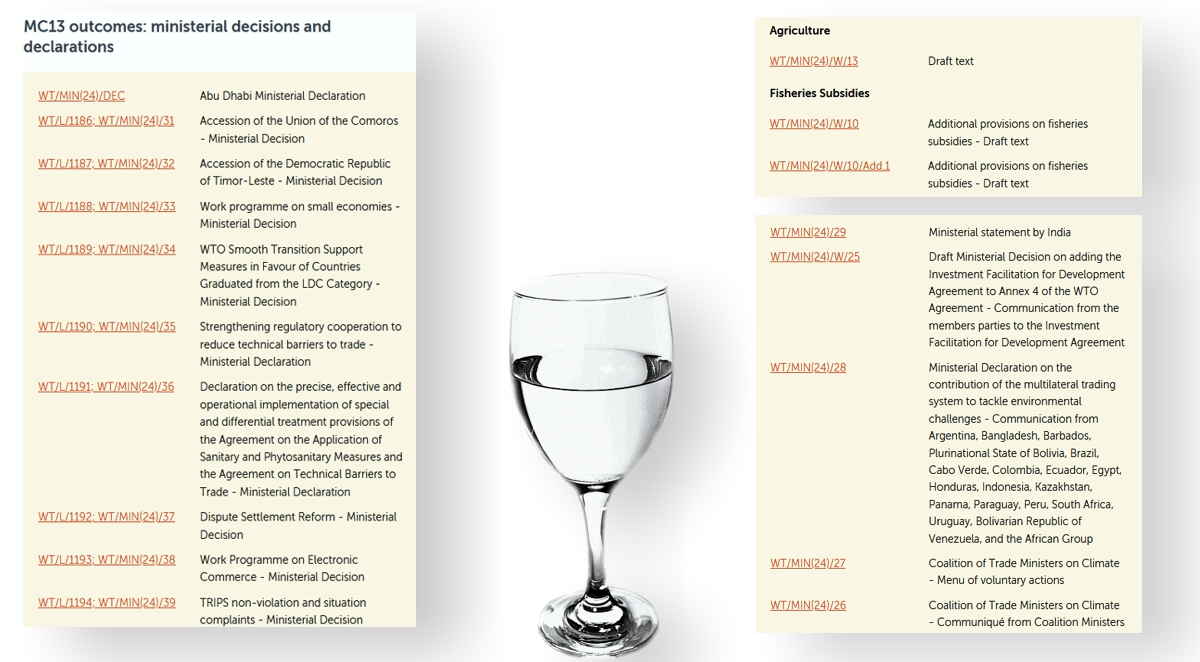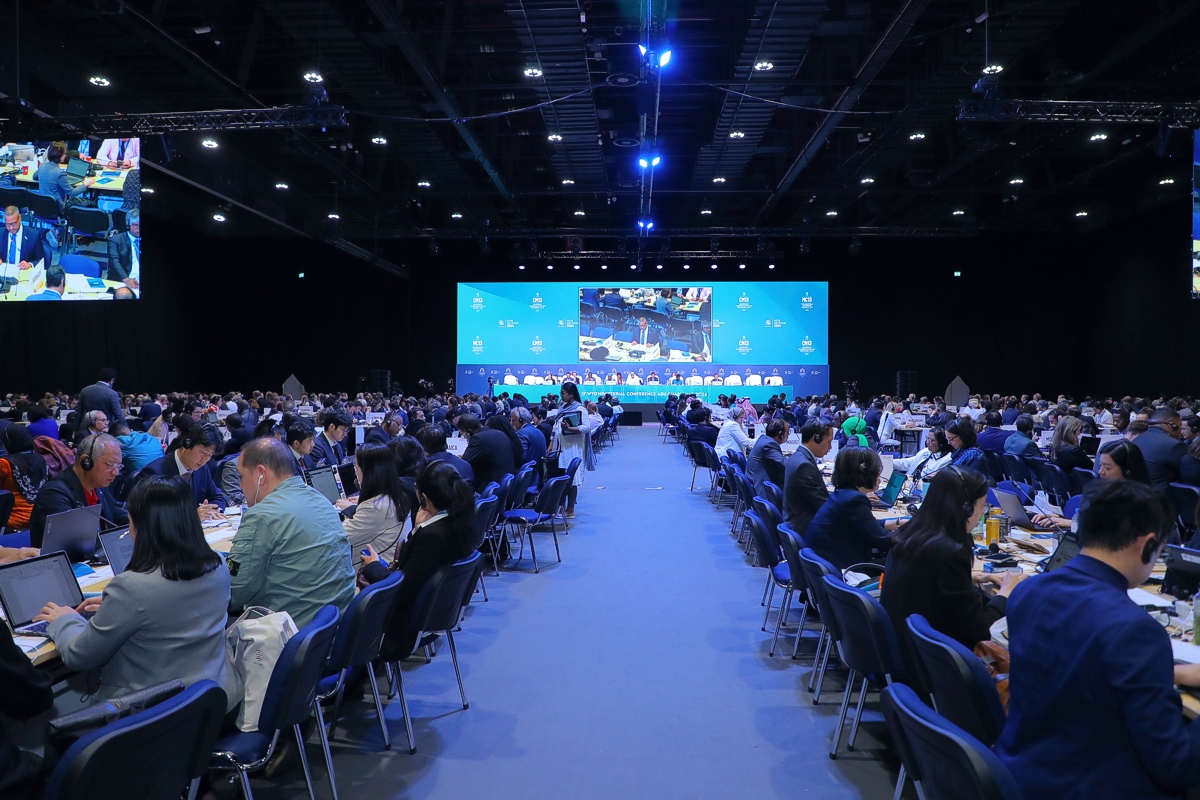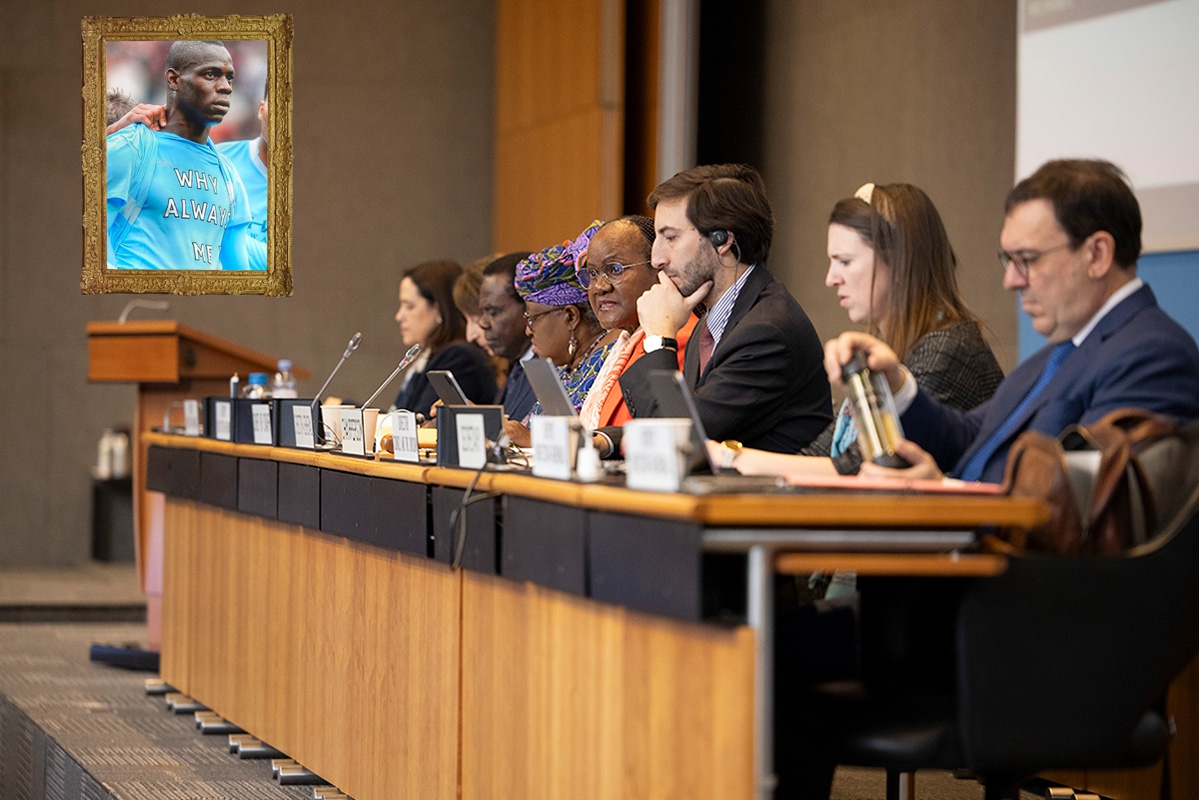PREVIOUS STORIES
Seven talking points after the WTO’s 2024 Ministerial Conference
Chair’s draft pushes WTO farm talks deadlines back to next conference
‘Mission impossible’ and ‘mission essential’ collide in WTO farm talks
See also all stories on this topic (tagged “agriculture negotiations”)
Posted by Peter Ungphakorn
APRIL 21, 2024 | UPDATED APRIL 21, 2024
Negotiators in the World Trade Organization’s farm talks broadly agree that a new approach is needed to revive the talks after they failed completely at the Abu Dhabi Ministerial Conference, but they differ on whether to tackle the entire subject or focus on priority areas.
On the table in the April 16, 2024 meeting was a proposal from Brazil for a decision by the General Council in July. This would effectively turn the scrapped draft from Abu Dhabi into a postponed decision, while removing the no longer available option of agreeing on over-the-limit subsidies in food stockpiling (“PSH”) at the Ministerial Conference.
The WTO’s General Council has the power to take decisions on behalf of its Ministerial Conferences.
In a separate process, WTO members also agreed on a non-binding document on food security, including export restrictions, also a binned agricultural text in Abu Dhabi.
Continue reading “WTO farm talks seek fresh thinking without losing everything”










